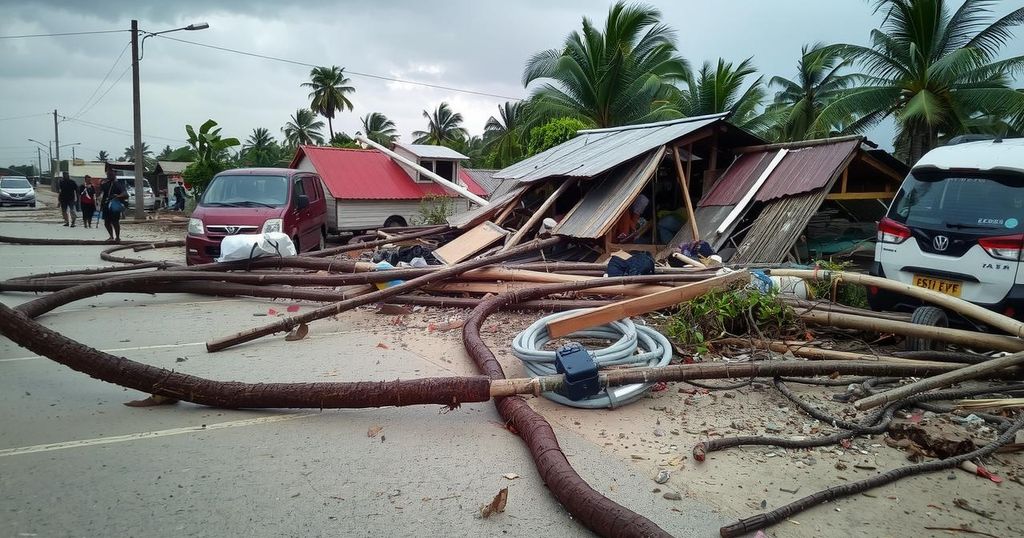Cyclone Chido has led to a death toll of 94 in Mozambique and 13 in Malawi. The cyclone hit the coasts on December 15, with wind speeds reaching 260 km/h, affecting approximately 622,000 people and damaging 140,000 homes.
The death toll from Cyclone Chido in Mozambique has tragically increased to 94, according to a report released on Sunday. The cyclone made landfall along the Indian Ocean coastline on December 15, with wind speeds reaching a staggering 260 kilometers per hour. The cyclone has resulted in 768 injuries and has directly impacted approximately 622,000 individuals, with significant damage inflicted upon the infrastructure of the region. Approximately 140,000 homes were destroyed or damaged, alongside 52 healthcare facilities, 89 public buildings, and 250 schools.
In Malawi, the Department of Disaster Management Affairs reported a rising death toll of 13 from the cyclone, which has inflicted injuries on 30 individuals and affected over 35,000 people. Cyclone Chido first made its presence known on December 14 in the French Indian Ocean territory of Mayotte, before moving on to devastate Mozambique, Malawi, and Zimbabwe, leading to widespread destruction across these countries.
Cyclone Chido is a formidable storm that originated in the Indian Ocean, becoming a significant natural disaster for several southern African nations, particularly Mozambique and Malawi. As a testament to the increasing frequency and intensity of cyclones due to climate change, Cyclone Chido exemplifies the vulnerabilities faced by coastal regions. Wind speeds recorded from this cyclone were unprecedented, resulting in severe infrastructural damage and loss of life, underscoring the urgency for improved disaster management and preparedness strategies in the area.
In summary, Cyclone Chido has severely impacted Mozambique and Malawi, leading to considerable loss of life and displaced communities. The disaster highlights the growing threat posed by climate-related events and calls for urgent attention to disaster risk management in vulnerable regions. Immediate international aid and support will be crucial to helping affected populations recover and rebuild their lives after this catastrophic event.
Original Source: www.aa.com.tr







